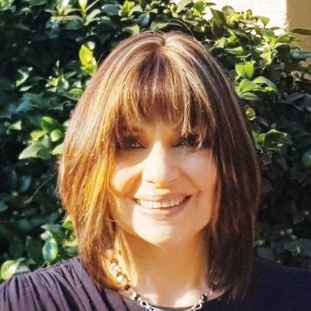
OpEds

16 Days of Activism: what about the boys?
He was a beautiful, brown eyed young boy born into a loving family. He was exceptionally bright with a talent for gymnastics, competing at national and international levels. His parents enrolled him at St John’s College to give him the best opportunity for his destined academic success. Being small in stature and a late developer made him a target for bullying, and the school recommended that he have weekly counselling sessions with the head of pastoral care to help him cope.
These sessions gave the head of pastoral care an open mandate to meet Julio one-on-one and provided him with the perfect opportunity to isolate and groom Julio. He became a trusted figure for the boy and his concerned parents by appearing to show a real interest in Julio’s well-being. He introduced him to rock climbing, gave him special privileges which became their secret, and used these to build a bond ultimately to ensure this innocent child’s silence as he groomed and sexually abused him.
Despite always being encouraged by his supportive parents to speak openly, Julio couldn’t disclose the details of his abuse. For more than a decade, he buried his pain, believing that he was the only one who had been harmed. His family struggled to understand his deteriorating mental health as he became withdrawn, anxious, depressed, and unhappy at school. Following two years of counselling, his psychologist diagnosed complex post-traumatic stress disorder, and as she gently tried to get to the bottom of what had happened, he remained trapped by supressed memories of sexual trauma.
On 15 November 2021, St John’s College released a letter notifying the school community of allegations of sexual abuse by several past pupils at the hands of this former teacher and head of pastoral care. Could this be the piece of the puzzle missing in trying to understand their son’s deteriorating mental health? Together with his psychologist, his parents read the letter to him. His body language was telling, as he dropped his head saying, “Oh so there were other boys. I thought I was the only one.”
This beautiful young man was named Julio Mordoh, and he tragically took his own life by hanging himself with his belt on 5 November 2022 while in a secure, private, psychiatric facility where he had been admitted as a high-risk patient. Just two weeks before his admission, Julio signed an affidavit at Norwood Police Station confirming his sexual abuse by the accused from the age of nine to 12.
The school commissioned an internal review into the matter, which remains confidential. Only a redacted summary of the report was shared with the school community. However, two independent complaints were taken by staff of St John’s Preparatory School to their head during the tenure of the accused from 2002 to 2013, and these were alleged to have been “appropriately” dealt with by the prep head at the time. The report found no improper handling of complaints, but South African law states that when any reasonable suspicions or actual reports of child sexual abuse are raised, institutions have a legal duty to report to it to the South African Police Service (SAPS) and submit a Form 22 to initiate an independent investigation.
The Optimus Study on Child Abuse, Violence and Neglect in South Africa, published in 2018, confirms that sexual abuse is so widespread that overall, 35.4% – one in every three adolescents – report having experienced some form of sexual abuse before the age of 18. Child protection activist Luke Lamprecht highlights that boys often lack the language to identify as victims and face significant barriers to speaking out, including shame, societal expectations of masculinity, homophobia, and myths that male victims become perpetrators. These factors contribute to male victims being two to five times more likely to attempt suicide, with many seeing it as the only way to escape their pain.
More than 10 victims have come forward with allegations against the former St John’s Preparatory teacher, but the original criminal case stalled and remained dormant for 2.5 years in North West due to a lack of investigation. The accused remains at large, with no arrest or bail hearing held. Colonel Niemand, the head of special projects, managed to revive the case and on 18 November 2024, the National Department of Public Prosecutions agreed to centralise the case in the Johannesburg High Court. A trial date is still pending.
Attorney Ian Levitt, who is leading the case, explains the necessity of both criminal and civil action.
“While no civil claim can ever compensate for child sexual abuse and the loss of a child, holding institutions and individuals who ignored abuse accountable is crucial to effecting change and preventing future harm,” Levitt says. “Punitive damages and civil action are necessary consequences to enforce the change that we need to see in civil society. Pursuing predators, both criminally and institutions civilly, is essential.”
Sitting with Teresa Mordoh, one is struck by the immensity of her pain. This could be any of us, trying our best as parents, giving our children every possible opportunity. Yet all it takes to destroy an innocent life is one predator and a failing system that doesn’t effectively protect our children’s rights to safety, dignity, and innocence.
As parents trying to navigate the pain of losing their child to suicide, the Mordohs have registered a non-profit organisation called STOPS (Stop Trauma of Pupils in School) in honour of their son. Together with Lyra, a provider of digital mental-health-support services, their vision is to empower youth with access to a professional network of registered counsellors via a mobile app 24/7, 365 days of the year, and a confidential, tollfree STOPS safe reporting line for whistleblowing.
Instead of making grand statements about the 16 Days of Activism Against Gender-Based Violence and giving lip service to the need for stronger law enforcement and legal reform, our government needs to focus on accountability, and our schools need to focus on compliance and responsibility. It’s time to stop talking and start acting.
Effective criminal action is critical to punish perpetrators, and civil action is required to hold institutions accountable for hiring them and turning a blind eye when suspicions surface. There should be no more “marking of their own homework”. Anyone with a reasonable suspicion of sexually inappropriate behaviour must report it to the SAPS and submit to independent investigation any staff member or religious leaders or face the voracity of criminal and civil consequences.
After the tragic death of her son, Teresa Mordoh vowed that though he died in pain, it wouldn’t be in vain. This ultimate sacrifice of a precious life must be a catalyst for real change. Let 16 Days of Activism become 365 days of accountability for those schools and institutions who fail our children. As Levitt states, “No war is won by fighting half a war. Either this is your fight to your very core, or it’s not your fight at all.”
- Rozanne Sack is a co-founder of Koleinu SA, a helpline and advocacy organisation for victims of gender-based violence and child abuse in the Jewish and wider community.










